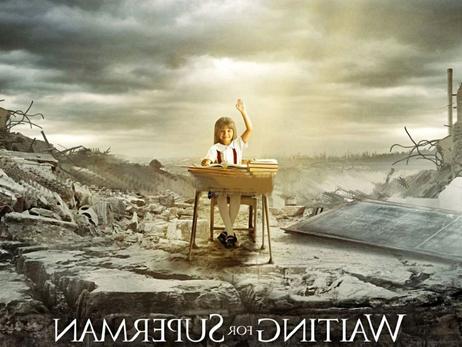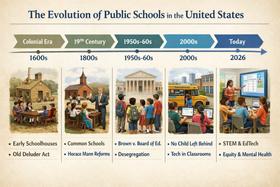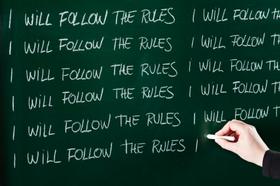Waiting for Superman is the latest documentary to be released into theatres. It depicts the current state of public education and offers recommendations from experts on how to improve a failing school system. This film precedes recent comments by President Obama on the importance of strengthening the quality of education in this country if we are to remain competitive in a global market.
Here is a trailer for Waiting for Superman.
It also comes when severe budget cuts, thanks to the recent economic slowdown, have strapped already cash-pinched schools even further, forcing them to cut additional programs and staff when the public school system is on the brink of disaster.
Waiting for Superman is the brainchild of David Guggenheim, the same documentary filmmaker who brought us "An Inconvenient Truth," the documentary that rocketed former Vice President Al Gore to Nobel Peace Prize status. Sheila Curran Bernard, associate director for documentary film studies at the University of Albany/SUNY, told USA Today, "What gives some of these films their power is not just the content, but also the craft. Imagine how dull 'An Inconvenient Truth' might have been if it were not shaped well."
Telling a Story
The same can be said of Waiting for Superman, a film that follows five families through the public school experience, according to a synopsis on the official movie website. It illustrates how the educational welfare of many families in struggling school districts is left to chance – the luck of the draw in a lottery system will send just a handful of students to the best public or charter schools in the area.
The film paints a vivid picture that is heart-wrenching and hopeful at the same time. It is no wonder this film garnered ample attention before its release last week, and it continues to do so as reviews roll in on both sides of the spectrum.
Sparking Controversy
While it is not unusual for a documentary to unleash a myriad of controversy, Waiting for Superman generates more than the standard share. On the one hand, big names like Bill Gates and Oprah Winfrey are singing the praises of the documentary, believing that a complete overhaul of our educational system is necessary if children from all walks of life will receive the same opportunities.
Conversely, opponents of the documentary worry that demonizing teachers and teacher unions will only serve to put the future of education in the hands of business leaders and politicians rather than giving control to the people who understand how to teach kids best.
Those in Favor
Bill Gates is one of the most vocal proponents of Waiting for Superman. According to a report from the Third Age, although Gates and his children had the good fortune to attend private schools, he has long been a vocal supporter of high-quality public education in this country. The Bill and Melinda Gates Foundation has supplied grants for many educational opportunities. When Gates saw Waiting for Superman last year, he immediately came on board to help promote the film because he saw firsthand how a documentary like this could further the cause of public education.
"It became obvious that we had an incredible opportunity because he'd told the story so well," Gates told Third Age.
Those Opposed
Despite the strong proponents of this documentary, many also believe Waiting for Superman takes the wrong approach to reforming education in this country.
In an editorial in Huffington Post, Jeanine Molloff accuses the film of heralding educational solutions funded by big business while ignoring genuine problems schools face today, such as slashed budgets and overcrowded classes. Molloff also claims that the film picks and chooses what to highlight about the current state of the education system, avoiding topics like censored curriculums and the impact of growing poverty on children while singing the praises of "innovative" solutions proposed by charter schools.
This video offers another panel discussion about Waiting for Superman.
Documentaries like Waiting for Superman have the capacity to sway public opinion and may even promote some of the change that is much needed in our public schools today. When it comes to the future of our kids, the answer is clear—public education does indeed require reform. The question then becomes, does Waiting for Superman offer real solutions to our educational dilemma or spark controversy over the best way to educate our kids?
Questions? Contact us on Facebook. @publicschoolreview















